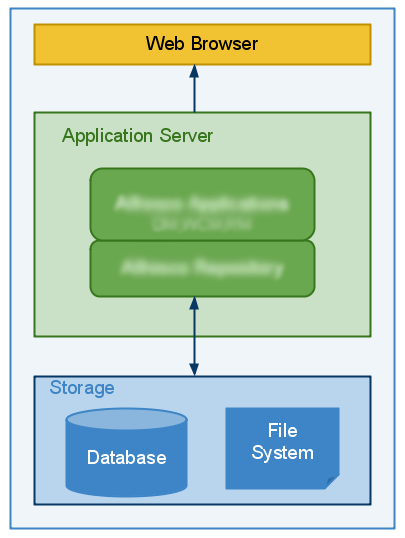In creating my plan to learn to code, I made the decision to learn Ruby. The first programming language is a very important decision and one that I didn’t take lightly. Below is the process I followed to make this decision.
First, a bit about web technologies (you can skip to the 4 factors if you’re familiar with web technologies click here). If you’re like me, someone without a technical background, you’ve been amazed by a first-hand experience with an amazing web application.
While that amazing web app is a cohesive product, it’s important to understand that there are several layers or tiers of functionality you’re experiencing simultaneously. Before you choose your area of study, consider how each of these areas apply to you.
Tiers of Web Functionality
- Graphic Designer – This person creates the visual aesthetics of an app, including colors, logo, and layout. The graphic design determines the immediate impact felt by users and the mood conveyed by a site. Graphic design isn’t truly a web development tier, but I think it’s important to recognize because of its impact on users.
- Web Designer – Using primarily HTML, CSS, and JavaScript, the web designer brings a web app to life and makes it interactive to the end user.
- Web Applications Developer – This developer is concerned with the interaction between the client (web browser) and the application server.
- Web Database Developer – In complement to applications developer, the web database developer ensures a smooth connection between the application server and the database.
Experts in each of these areas work collaboratively to execute a complete web application. In reality, most everyone learns skills across different tiers and it’s not practical to dedicate yourself to learning only one area in a vacuum separate of any others. But, you do need to select your primary area of expertise and that should the focus of your first programming language. This level of specificity will ensure you have a clear end goal and focus of study.
Once you’ve selected your tier of expertise, you need to select a specific language. Just like there are different spoken langues to express “Hello“, there are different tools and languages within your chosen area, each with pros and cons. I won’t start to name all the specific options, but instead show how you can evaluate these options and pick what programming language is right for you.
I selected the Web Applications Developer tier and then narrowed my language choices to python, PHP, and Ruby. Here is the process I used to evaluate different languages and decide where to start.
4 Factors for Learn to Code
#1 Executing a Prototype
You want to learn because you want to build something which serves a purpose. Your first development attempt will not bring you fame and fortune. But, you may build a prototype which either inspires someone else to work with you or to invest in your idea. How easily you can build this basic mode is a strong factor to consider.
Learning programming is a means to an end objective and getting outside support can expedite your process. Because Ruby has the Rails framework, I felt confident I’ll be able to get up a working prototype by the end of my 18 weeks.
#2 Learning Feedback
I’m part of the ADD generation. Our brains have been trained to expect immediate gratification. If you’re learning and there is large barrier to begin executing, it’s going to make the process more tedious. If you have the dedication, then more power to you. Be realistic about your expectations and commitment to your goal.
#3 Access to Mentorship
Don’t underestimate this factor. There are unlimited resources avaiable online and in books, but the talking with someone one-on-one is a huge help. Use meetup groups locally where you can meet web developers in your selected language. Developers were in you’re shoes once, and most are willing to help you. Even better, find mentor-specific opportunities to get involved with.
I was lucky to get connected with Tara Tiger Brown in Los Angeles and the Teach My Stuff program. Through this program, I’m working with Joe Goldberg, who’s Ruby expertise helped me plan my own learning program. We meet every two weeks and he’s available to answer questions when I need clarifying.
#4 Future Relevance
While not as important factor as the first three, it is still worth considering. Web development changes rapidly and you wouldn’t want to bank on what’s going to happen in the future. You should consider your future opportunities, both from a career standpoint and the type of projects you’ll be suited to work on.
For example, there are many people who have a passion for Latin and thus choose to learn what’s considered a “dead language”. But, your future opportunities if you learn a programming language that’s the equivalent of Latin will be diminished.
Conclusion
These are the factors which I considered when choosing Ruby. Do you agree or disagree with my reasoning? Are there factors that I didn’t include, which should be considered? Leave your thoughts and questions in the comments.
Update: Join the lobste.rs discussion here.

